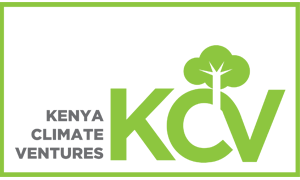With a population of over 200,000 people, Kakuma refugee camp, Kalobeyei Settlement and Kakuma town requires sustainable access to affordable clean and efficient energy. Affordable cooking and lighting solutions are greatly in demand, albeit unreliable and in inadequate supply. Limited supply of affordable energy products and services is a function of many factors, key amongst them is that Kakuma and its environs is a logistical expensive market to operate for both non – governmental organizations and private sector enterprises.
While a convergence of public institutions and private sector players is desired to deliver the daily promised energy security, such initiatives have been challenged by lack of context – tailored financing and local market knowledge to drive transformative interventions. Donation of energy solutions has been unable to provide long lasting satisfaction to the local communities due to the intermittent and inadequate nature of the distribution. On a related note, certain trials of market – based approaches have shown limited traction due to exclusion of host communities and short term nature of their delivery.
Kakuma is a US$ 5.8 million per year market, over 2,000 traders conduct their daily tractions without fail; refugees and host communities interact regularly within the camp/ settlement or Kakuma town as suppliers and customers; banks and micro finance institutions have opened trading branches in Kakuma town and grassroot camp and village-based savings and loaning schemes are flourishing. There are clear indications of a blooming marketplace which requires to be supported with progressive regulations, context structured capacity building and financing to sustain a socio economic take off. Commercial energy provision has potential to accelerate the desired growth – powering domestic, economic and productive use.
Read also: Why there is a need to invest in humanitarian markets
The Big question is, what is the best approach to boost energy access in such a humanitarian and logistically challenging market? There is no silver bullet. Building on the gains of precedent market – based trials is important. Notably, after decades of co-existence, it is not uncommon for refugee camps and host communities to become socio – economically interdependent and therefore investments which benefit both refugees and host communities can be more impactful. Inclusive consumer financing is critical. Increased incentives for private sector entry and stay in this market is key.
Private companies may be encouraged to offer more affordable and reliable powering solutions in these settings if certain risks are mitigated. Blended support for business strengthening and capital financing can achieve transformative market improvement. A blend of grants and patient, concessional commercial capital is needed to de – risk private enterprises and gain business traction and attract follow on commercial capital.
De – risking opportunities to finance energy activities in this market include the Kakuma Kalobeyei Challenge Fund, KOSAP and now Kenya Climate Ventures (KCV) Limited, www.kcv.co.ke, a local impact investor providing patient financing to private enterprises to accelerate access to transformative climate smart solutions in marginalized and underserved markets in Kenya. KCV has invested in Sunken Limited to expand its last mile distribution of portable solar irrigation pumps, solar home systems and energy efficient cookstoves in Turkana County, including Kakuma and Kalobeyei areas.
By Victor Ndiege, KCV CEO












